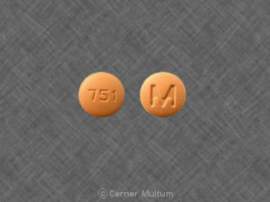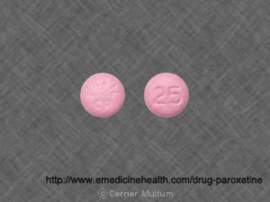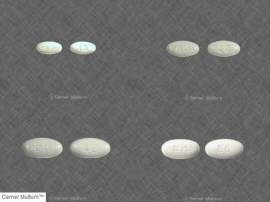
Levothroid Lawsuit

A Brief Guide to Filling a Levothroid Lawsuit
Levothroid is a thyroid hormone used to treat hypothyroidism—a medical condition where the thyroid gland does not produce enough thyroid hormone. Because of the lack of production, the body fails to function properly, resulting in: slow speech; fatigue; poor growth; hair loss; thick sin; weight gain and increased sensitivity to cold. When administered correctly, the drug reverses these symptoms.
Common Side Effects of Levothroid:
• Weight loss, nausea, vomiting, stomach cramps, irritability, excessive sweating, diarrhea, changes in the menstrual cycle and sensitivity to heat.
• Serious side effects of Levothroid include: chest pain and a rapid or irregular heart beat
Because of these Levothroid side effects, the United States Food and Drug Administration recalled certain batches of the drug. The recalled Levothroid doses include the following:
• Levothroid 100-mcg, 100-count and 5,000-count bottles. Recall # D-377-2. Lot 80017, Exp. 08/2002, 5,000 count, Lot 80019, Exp. 08/2002, 5,000 count, Lot 90014, Exp. 09/2002, 5,000 count, Lot 120028, Exp. 01/2003, 100 count.
Levothroid 125-mcg, 100-count bottles. Recall # D-378-2. (Lot 70035, Exp. 07/2002, 100-count, Lot 70038, Exp. 07/2002, 100-count, Lot 80033, Exp. 08/2002, 100-count, Lot 80034, Exp. 08/2002, 100 count
Levothroid Legal History:
The most prominent Levothroid lawsuit was filed by the Justice Department concerning the drug manufacturer’s (Forest Labs) deliberate manufacturing of Levotrhoid for unapproved uses. This Levothroid lawsuit resulted in a settlement that included criminal fine of $150 million and a forfeiture of $14 million in assets. Additionally, in this Levothroid lawsuit, the company was found guilty of fraudulent marketing.
This landmark Levothroid lawsuit was filed in response to Forest Pharmaceuticals illegal distribution of the drug for treatment of hypothyroidism in the early 1990’s. This maneuver was made without obtaining approval from the USFDA. However, the Levothroid lawsuit did not institute penalties for selling the product without approval—the drug, in 1997, was given a second chance when the FDA deemed it medically necessary. In 2001, the FDA declared that it would continue to permit sale of unapproved Levothroid drugs on certain conditions. One of these conditions—a fundamental aspect of the Levothroid lawsuit—was that manufacturers needed to comply with a distribution phase-down if they did not secure approval. According to the Levothroid lawsuit, Forest made a deliberate decision to maintain distribution efforts of its unapproved Levothroid drugs in quantities that far exceeded the amounts allowed by the phase-down plan.
The FDA, according to the Levothroid lawsuit, sent warning letters to Forest on August 7th of 2003, informing the company that was not entitled to distribute the unapproved drug. According to the government, the company directed its St. Louis distribution center to continue shipping as much of the unapproved Levothroid as possible.
In addition to these illegal practices, the Levothroid lawsuit also indicated the company’s inability to follow safety protocol in its Cincinnati plant in 2003. According to the Levothroid lawsuit, personnel at the plant were aware that equipment malfunctions severely violated FDA requirements for the production of Levothroid. During this time, according to Levothroid lawsuits, the company did not comply with FDA investigations.
In response to this Levothroid lawsuit, Forest Pharmaceuticals pleaded guilty to marketing drugsfor unapproved uses and obstructing justice. Both the civil and criminal Levothroid lawsuits were predicated upon the company’s decision to deliberately place a higher priority on increasing sales than complying with the requirements instituted by Congress and the FDA.
In addition to this Levothroid lawsuit, legal action may be undertaken by consumers, particularly people who take medium and high doses of the drug. Before beginning a course of treatment with this medication, a doctor should explain that prolonged use of this medication increases the risk of decreased bone density. Such Levothroid side effects may lead to more easily broken bones. In 2011, the British Medical Journey released a study demonstrating a correlation between intake of the drug and the risk of bone fracture. The study surveyed 213,000 patients past the age of 70 who were treated between April 2002 and the end of March 2007. Approximately 10% were found to have Levothroid side effects in the form of bone fractures.
It may be difficult to pursue a Levothroid lawsuit regarding such occurrences. Similarly, users should be alert for any Levothroid side effects indicative of an overdose, such as nervousness, significant unexplained weight loss, dizziness and confusion. Acute overdoses require emergency medical treatment. Such reactions are unlikely to serve as the foundation of a strong Levothroid lawsuit, since their risk is clearly indicated in the manufacturer's prescription information.
Patients who wish to pursue litigation concerning Levothroid side effects in the form of bone fractures can argue the manufacturer does not provide sufficient warning of this risk. An attorney will need to evaluate the possibility of a successful Levothroid lawsuit concerning such an occurrence. To date, no significant litigation has resulted in a publicly reported settlement regarding such Levothroid side effects.
Sources:
1. United States National Library of Medicine Levothyroxine retrieved from:
http://www.ncbi.nlm.nih.gov/pubmedhealth/PMH0000684/
2.http://www.fda.gov/ICECI/CriminalInvestigations/ucm245543.html
3. http://www.fda.gov/downloads/Drugs/GuidanceComplianceRegulatoryInformation/EnforcementActivitiesbyFDA/
WarningLettersandNoticeofViolationLetterstoPharmaceuticalCompanies/UCM170777.pdf
4.http://www.fda.gov/downloads/Drugs/GuidanceComplianceRegulatoryInformation/EnforcementActivitiesbyFDA/
WarningLettersandNoticeofViolationLetterstoPharmaceuticalCompanies/UCM166324.pdf
5. http://www.fda.gov/NewsEvents/Newsroom/PressAnnouncements/ucm225890.html



















